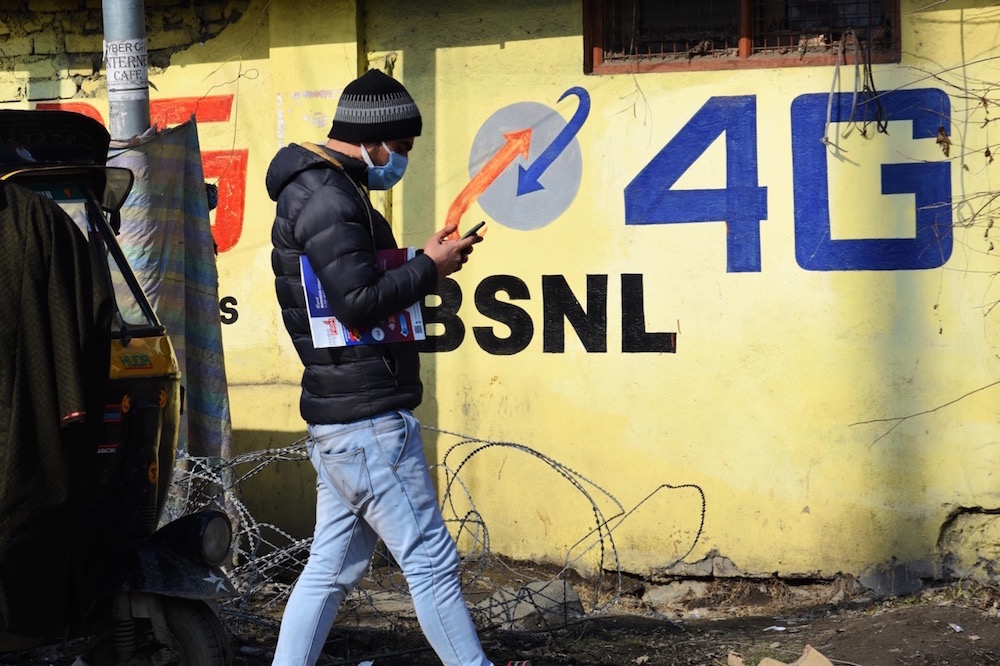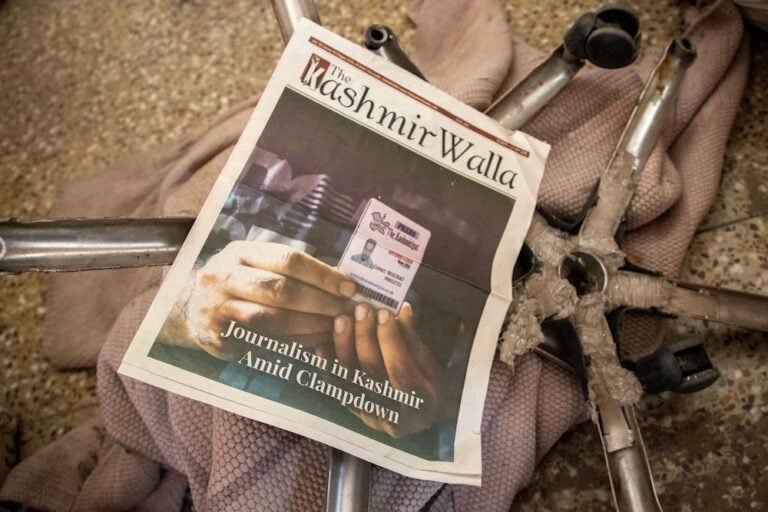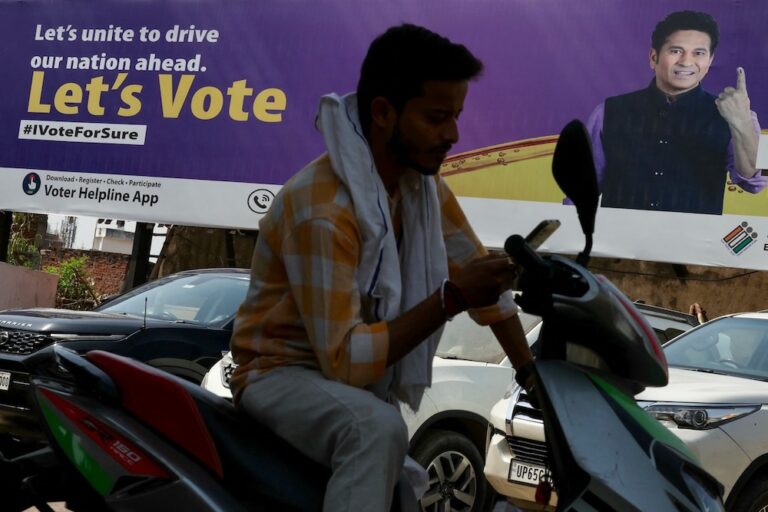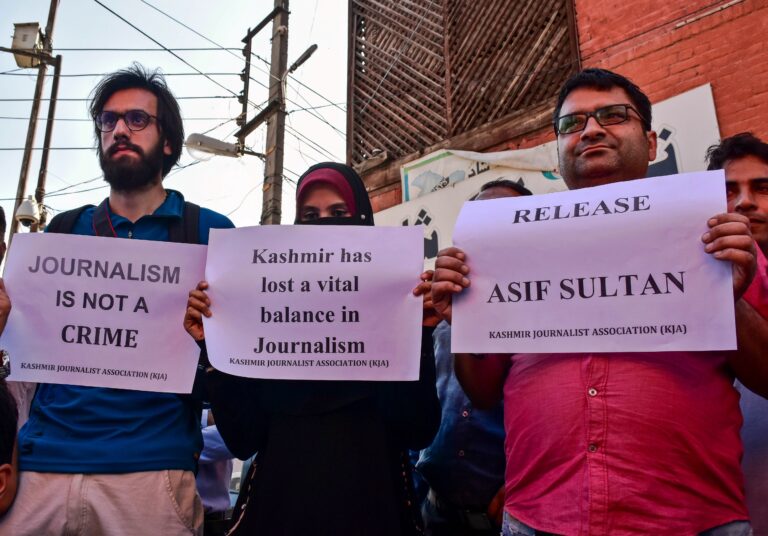"The region's independent journalists and media outlets have come under intense pressure, facing arbitrary detention and arrest as well as internet shutdowns, which have prevented them from communicating and publishing their work."
This statement was originally published on ipi.media on 14 July 2022.
From arbitrary arrests and detentions to communications blackouts, journalists in Indian-administered Kashmir operate in one of the world’s most difficult and restrictive environments. IPI continues to monitor and document the alarming deterioration of press freedom in the region, which has significantly worsened since the Indian government revoked the state’s special status three years ago.
This decline has occurred amid broader attacks on press freedom in India under the government of conservative nationalist Prime Minister Narendra Modi, whose Bharatiya Janata party has fueled anti-Muslim sentiment.
While the Indian government has always sought to tightly control the media in Kashmir, the situation for independent journalists in the predominantly Muslim region has sharply declined since the government in August 2019 repealed Article 370 and 35a of the Indian Constitution, which gave Jammu and Kashmir significant autonomy. Since then, the region’s independent journalists and media outlets have come under intense pressure, facing arbitrary detention and arrest as well as internet shutdowns, which have prevented them from communicating and publishing their work.
A consistent target of government harassment has been the independent weekly The Kashmir Walla. The outlet’s editor, Fahad Shah, has been arrested multiple times this year. He was first arrested on February 4 under the Unlawful Activities Prevention Act (UAPA) for uploading “anti-national content”. He was arrested two more times before being jailed under the Jammu and Kashmir Public Safety Act (PSA) in March while he was still in police custody. On May 20, he was arrested for a fifth time, according to The Indian Express.
Another journalist at The Kashmir Walla, Sajad Gul, was arrested in January 2022 under the PSA for sharing “disinformation” on social media after he posted a video of a protest. He had been booked the previous year for reporting on a demolition drive. Fazil, Shah and Gul are still in jail today.
On June 2, authorities questioned Yashraj Sharma, the interim editor of The Kashmir Walla, as part of an investigation about an article, ‘The Shackles of Slavery Will Break’, published by the magazine in 2011, according to reports. In January 2021, Sharma had been charged alongside The Kashmiriyat reporter Mir Junaid with intent to cause riot and public mischief.
Sharma joined The Kashmir Walla in 2018 and was only 12 years old when that article was published. The States Investigation Agency (SIA), a newly set up specialized body investigating terrorism cases, said the article was “highly provocative, seditious and intended to create unrest in Jammu and Kashmir”, according to The Wire.
The author of the article, Abdul Aala Fazili, who is a PhD student at the University of Kashmir, was arrested under the Unlawful Activities (Prevention) Act (UAPA) on April 17. The SIA also raided his residence, The Kashmir Walla office and the home of Fahad Shah.
Draconian laws used to harass independent journalists in Kashmir
The spate of detentions and arrests of journalists at The Kashmir Walla exposes the troubling pattern of the use of laws -including anti-terrorism and preventative detention laws – to target Kashmiri journalists.
These recent incidents also come as part of an escalating pattern of press freedom violations in Modi’s India. The government has passed numerous laws and policies that civil society and journalists say are having the effect of criminalizing journalism.
Why section 153A of Indian Penal Code is under scrutiny
Cases registered under section 153A rose by six times between 2014 and 2020. Read more from our partners at The Week about how numerous provisions in India’s criminal code are being used to punish critical reporting.
The Unlawful Activities (Prevention) Act (UAPA) criminalizes any activity intended to “cause disaffection against India”, “disrupt the sovereignty and territorial integrity of India” or incite individuals to bring about the cession or session of part of the territory of India.
The law has often been used to silence critical journalists. An amendment to the law introduced in 2019 empowers the government to designate individuals and organizations as terrorists – and puts the burden of proof on the accused to show they are not terrorists. Rights groups have criticized the UAPA over arbitrary provisions that have been widely used by the government as a tool to criminalize and stifle dissent. Under this law, authorities can arrest and conduct a search-and-seizure operation without a warrant if they suspect a person is associated with an unlawful group.
The Public Safety Act (PSA) is another tool used by authorities to crack down on independent journalists. The PSA is an administrative detention law that allows for the preventative detention of any individual for up to two years without a warrant, trial or specific charges. A person is taken into custody under this law to prevent them from acting against “the security of the state or the maintenance of the public order”.
The detaining authority does not need to inform persons charged under the PSA of the reason for the arrest, and the detained person does not have the right to challenge the arrest or engage a lawyer to represent them. The PSA can be slapped on people who are already in police custody or who were just granted bail by a court. In 2018, the law was amended to allow detainees charged under the PSA to be transferred to jails outside the state and away from their families.
Detainments under the PSA have spiked since August 2019, when Kashmir’s special status was revoked. More than 5,000 “preventative arrests”-which are arrests of individuals who authorities suspect will commit a wrongful act in the future- were made between August and December 2019 in Jammu and Kashmir alone.
Almost a year after the revocation of the region’s semi-autonomy, in May 2020, the Jammu and Kashmir Department of Information and Public Relations announced a new media policy that authorizes government officers to “examine the content of the print, electronic and other forms of media for fake news, plagiarism and unethical or anti-national activities” and mandates background checks for journalists.
Local journalists protested the policy, worrying it will make it easier for the government to go after reporters and publications, according to The Wire. Critics have said the policy – which was released in June 2020 – is inconsistent with India’s constitution, and its undefined checks on fake news are intended to justify the crackdown on journalists.
In another effort to censor independent media, authorities have placed travel restrictions on more than 40 people, including 22 journalists, barring them from traveling outside of India. The restrictions, known as “look out notices”, are not made public – those on the list remain unaware until they seek to travel abroad and are stopped at the airport. Analysis suggests that the government does not want journalists working for international organizations to share with the rest of the world what is happening in Kashmir.
The Jammu and Kashmir administration has also increased state surveillance and control of the media by issuing an order in August 2021 forcing “unauthorised/unregistered” journalists to “complete their registration or obtain approval” before they perform their jobs, and authorities can stop journalists who threaten public tranquility or peace.



